Mark Valdez is an artist and cultural organizer whose forté is partnering with communities, organizations, civic institutions, and others, using theatre and creative tools to address community needs and lift up community voices and stories. He began his practice as the associate artistic director for Cornerstone Theater Company, a Los Angeles-based ensemble creating plays in/with/for communities there and across the nation. In June 2022, Mark became the artistic director of Mixed Blood Theatre. R. Réal Vargas Alanis is an intersectional artist from the barrio of what is currently known as Winton, California (Yokut). Réal focuses on new works centering social justice uplifting marginalized stories and artists. Réal is the current artistic director of the arts and advocacy organization IN THE MARGIN, an ensemble of intersectional and interdisciplinary queer, trans, Black, Indigenous, person of color (QTBIPOC) artists. Both artists have centered their work around their communities. They have turned to their art through hopeless times and used it as a tool for change. Their conversation dives into the impact of Latinx theatre, its leaders, and the Latinx renaissance in our midst.
Claiming Our Places in the Legacy of Latinx Theatre
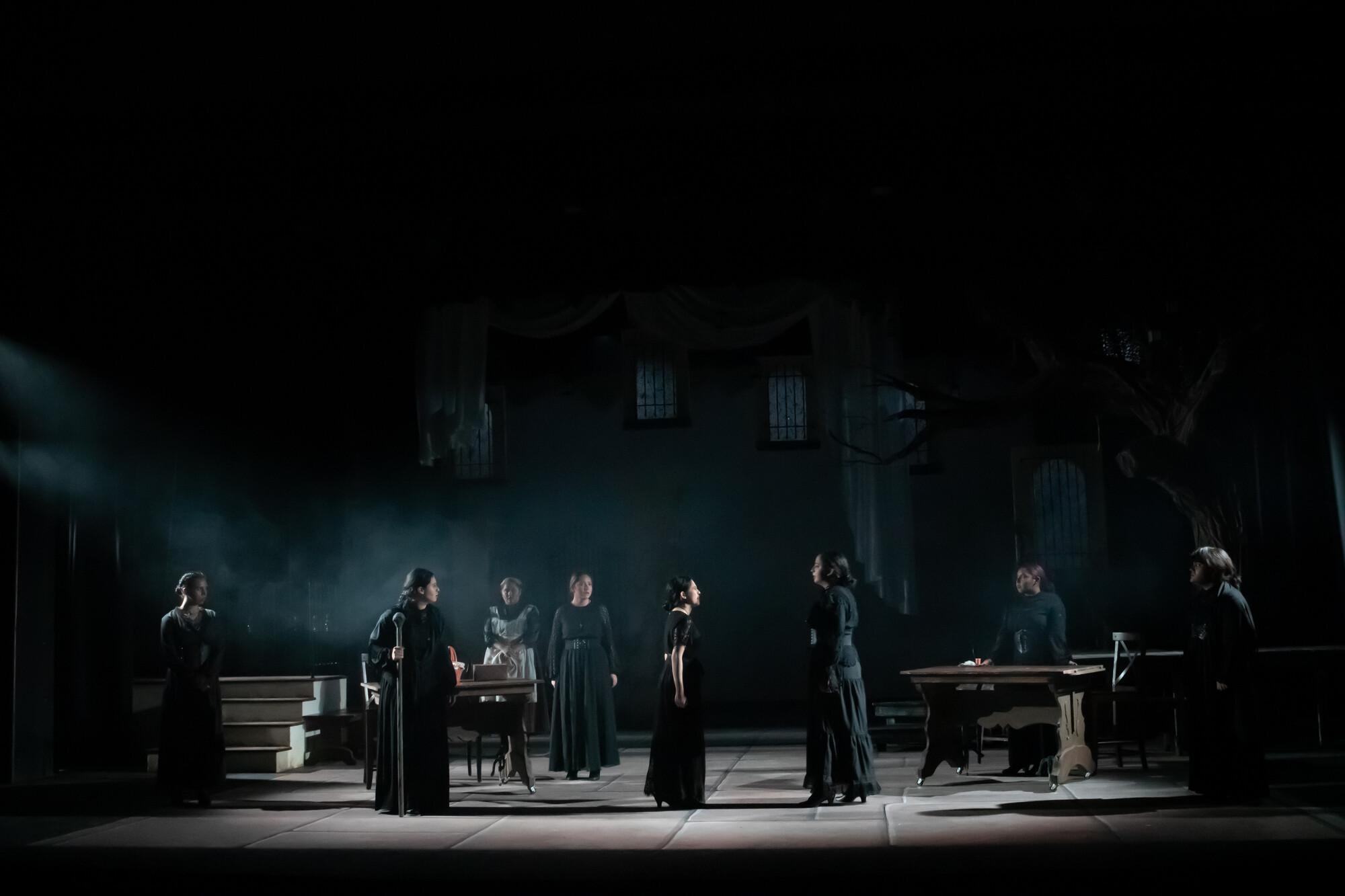
Maribel Torres, Renata Navarro De León, Elena Marisol Gonzalez, Rubi Jimenez, Ashley Mendez, Guadalupe Yepez, Connie Sarmiento, and Aleta Mascorro in La Casa de Bernarda Alba by Federico Garcia Lorca at California State University Stanislaus. Directed by R. Réal Vargas Alanis. Translated by James Graham Lujan and Richard O’Connell, with additional translation and dramaturgy by Jean Carlo Yunén Aróstegui. Scenic design by Eric Broadwater. Lighting design by Edgar A. Alamo. Costume design by Jonathon Singer. Composed by Avi A. Amon. Sound Design by Chandra Tep. Photo by Edgar A. Alamo]
Mark Valdez: Hello! How are you?
Réal Vargas Alanis: Good! Currently working on a show in Princeton and preparing to transfer a production of La Casa de Bernarda Alba, that I directed in the fall. It was selected to perform at the Kennedy Center’s American College Theatre Festival Region Eight in Las Vegas next month.
How are you?
Mark: Great. I'm in Los Angeles right now because I got invited to do this thing at the Music Center around digital innovation and narrative media. I co-started this collective called Mark-n-Sparks with my friend, ashley sparks. We created this piece called The Most Beautiful Home…Maybe that looks at affordable housing. I’m curious how we use the tools of art to address urgent issues like housing and the housing crisis.
Réal: How did this project come about?
Mark: In the dark years of the Trump administration, I just lost faith. I have twenty-five years’ experience doing work, and to what end? The country just felt like everything was moving backwards.
There's a common assumption that if you do a play, it will resonate with somebody, and they'll just reconsider an issue or change behavior or change their outlook. But our times are moving too fast for that kind of change model. So then I started to ask myself, “How do you bake the change you’re seeking into the piece itself?” Maybe then change can move a little faster, because we’re more intentional about the change that we're trying to reach.
Réal: Incredible work, and yes to questioning the intentionality of the things we create.
During quarantine in 2020, there was a crisis within canneries of California’s Central Valley. I did research on basic labor rights to craft workshops. I spoke to a multitude of labor councils, unions, and labor federations as a liaison for the workers. Gathered volunteers, formed a coalition, and assisted in organizing rallies. It was big! A lot of the concerns made it to the state capitol, with positive results.
Later, I approached movement leader Margarita A. Cacho to share a commission I received under the National New Play Network’s Bridge Program for the New American Theatre Festival. In La Demanda: A Call to Action, I dramatized what Margarita documented in her twenty years of working in the factory. It’s our docuvela, a portmanteau of “documentary” and “novela.” It didn’t start as an artistic project, but I felt it was an important story to tell. It’s living history of a workers’ rights movement. That’s the work I live for.
Mark: What we do is more than just make a play. We are building social cohesion. We're making meaning; we're building consensus. We rehearse the futures that we're imagining.
We are part of an arc, and therefore there's more to it than just my spot in it. Because we inherited something. Other people came before us, and what we contribute builds on that.
Réal: How did you get into theatre?
Mark: I started theatre in high school. I loved the stories. I loved the imagining. I loved the people.
I didn’t have visible examples of Latinos in theatre. So I was like, “I don't see anybody like me doing this, so therefore I must not be allowed to do it.” I lived in Dallas, Texas. I was twenty-one before I saw my first Latino on stage. In Texas! It's not like Latinos aren't there. That's why it just took a long time for me to find my way in.
Réal: I started in eighth grade, and my high school’s student body was primarily Latine. My teacher, Julianne Aguilar, wasn’t Latina but was culturally aware. She wanted our parents that attended shows to have something they could understand and relate to. She encouraged me to write a play in Spanish. I wrote, produced, and directed an adaptation of Hasta el Viento Tiene Miedo.
She taught me the importance of having a hands-on understanding of each element to understand how they intersect: producing, designing, stage management, directing, stage crew, acting—all valuable.
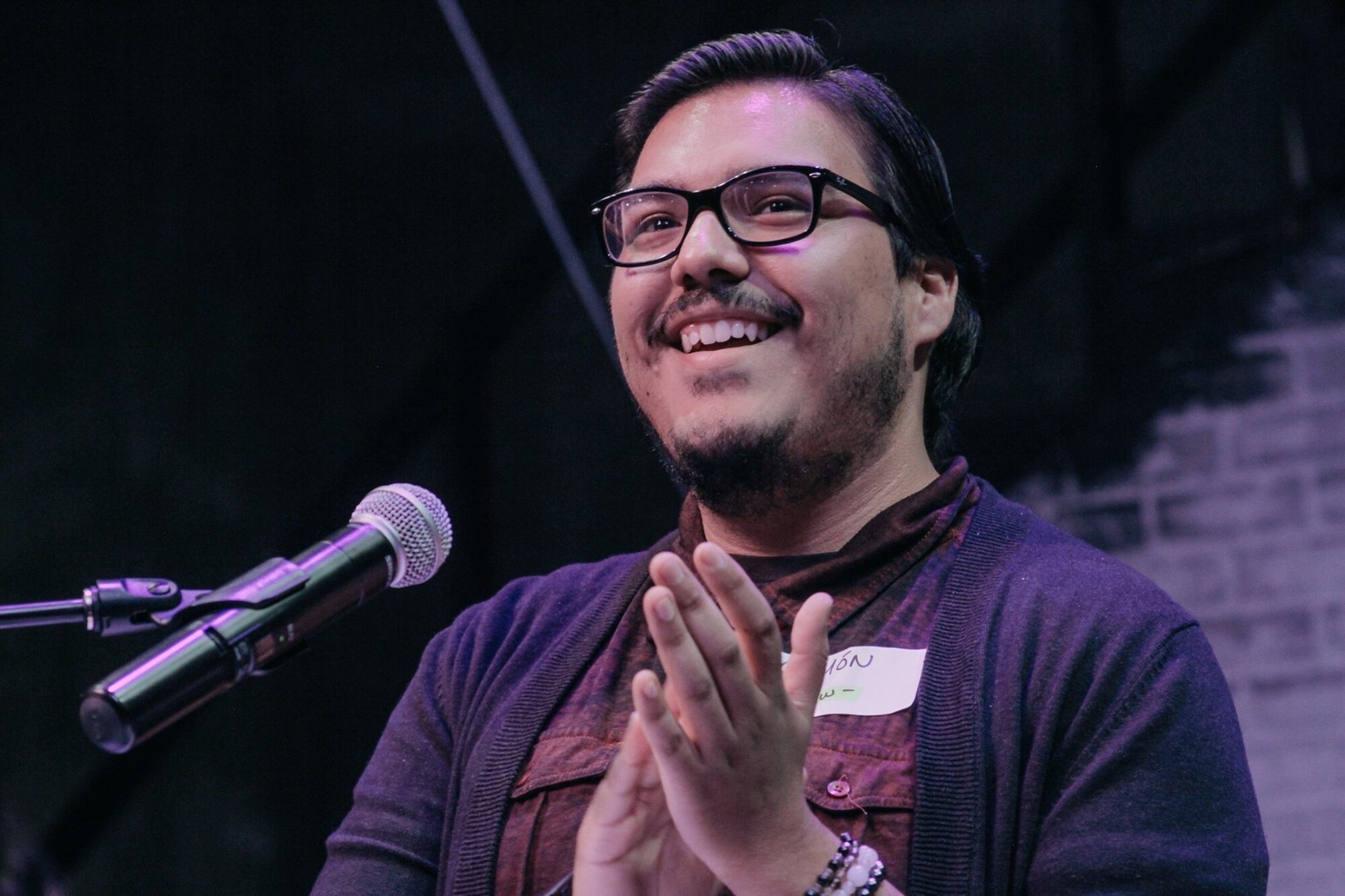
R. Réal Vargas Alanis, as the creative producer fellow for the Latino Theatre Company, giving part of the welcoming speech at the 2017 Encuentro de las Américas at the Los Angeles Theatre Center.
Mark: And that's in high school?
Réal: Yes.
Mark: Wow.
Réal: I know. I feel so lucky. College was difficult in the sense that it was an entire department led by white folks. The lack of culture was glaring. But a few professors pointed me in the right direction. I didn't necessarily have access to work by queer, trans, intersex, Black, Indigenous, people of color (QTIBIPOC) until my theatre history classes. They were vigorous upper division courses taught by professor Stefani Overman-Tsai. She taught me dramaturgy and deep analysis and exposed me to a wide variety of cultural works. Cynthia Santos DeCure was another professor that introduced me to the works great playwrights like Evelina Fernandez, Luis Alfaro, and Karen Zacarías.
One of the first Latinx theatre pieces I read was Lydia by Octavio Solis in 2017. I ended up producing and directing it. It was so well received on the campus. The word going around was "This show is so good. It's so fucked up. You've got to go see it."
The following year, I ended up working at the Oregon Shakespeare Festival. I went to a sports bar called Red Zone after my first company introduction. Octavio happened to be there. He came up to my table to say hello and invited me to his pachanga for Fourth of July. I had just moved to Ashland; I didn’t know anyone really. We chatted the rest of the night. I love how life did that.
Mark: You’ve got me thinking about the aesthetics of Latinx theatre. I think about your and my stories and some commonalities and there's a certain kind of “you just have to figure it out” thing that we experienced. I think about the way that we speak, the way that we're our art… this hyphenated, hybrid mix.
I'm also aware that we are part of an arc, and therefore there's more to it than just my spot in it. Because we inherited something. Other people came before us, and what we contribute builds on that. Part of wanting that definition of Latinx theatre is because I never belonged in the “majority thing.” So for me trying to understand and define Latinx theatre is also about trying to be a part of it.
We are, by definition, hyphenated in our identities. So how do we carry that? How does that reflect, and how does that inform the art that we are making?
I feel like we're at a high point in the movement: the caliber of art, the writing, the directing, the designing. It feels like we have a generation of active practitioners right now who are at the top of their game.
Réal: We're going to get different viewpoints of a very complex topic: our intersectional identities.
Mark: Amen.
Many years ago, I was swimming in these questions, and I created this performance piece called DJ Latinidad's Latino Dance Party. It was a play in the form of a dance party. We had this Puerto Rican DJ, DJ BreakBeat Lou, who was there at the beginning of hip hop in New York, the Bronx. We got connected, and it's like, "I want to create a dance party, and I want to look at Latinidad. What is it?" So we commissioned ten playwrights to write short pieces about and reflecting Latinidad today. Not a single person wrote anything about identity politics. Questions of identity never even came up.
And there was a wide range of artists from veteranos like Octavio Solis, but also Kristoffer Diaz and Virginia Grise. What was fascinating is they just wanted to tell stories and they wanted to tell them in a wide range of styles and approaches. And it was this one great moment reflecting where we are in our movement right now. We’ve moved past identity politics pieces, and now we can just tell stories.
Réal: There’s definitely a shift. When I first started to see Latine work, it always revolved around suffering.
Mark: Just to exert our humanity, we had to tell the sad stories. We had to tell the trauma stories, like, "Hey, white person, see me as a person. See how your actions, your policies are affecting my life." Those plays were really written for the benefit of white people just to get them to see us as human, and now we’re at a different point.
Réal: Absolutely. It’s also therapeutic. Maybe I should refer to them as drama therapy plays.
Mark: I remember when I first started grad school at University of California, Irvine. José Cruz Gonzalez had graduated from the directing program, and Keith Fowler, who was running the directing program asked, "Do you know José?" And I was like, "No," and he said, "Well, let me introduce you." So he introduced us. José said, "Let's just hop on the phone."
Now, you should know, José is the nicest, most wonderful human being in all of theatre. So on our call, José (who I’d never met) went through his address book and said, "You should call so-and-so, and here's their phone number. Tell them I suggested that you call them." He was in a position of power. He was running this program at South Coast Repertory Theater. He had been out there doing work, and he was like, "Let me open some doors for you."
Réal: I love that.
Mark: I feel like we're at a high point in the movement: the caliber of art, the writing, the directing, the designing. It feels like we have a generation of active practitioners right now who are at the top of their game. It feels like there's something special going on right now. History will name it, but it does feel like we're in something.
Réal: Agreed. We are shifting who’s in the room, who’s producing, who the leaders of organizations are. I’m thinking of Amelia Acosta-Powell, Jacqueline Flores, W. Fran Astorga, Jesse J. Sanchez, Sonia Yvette Alvares, Dr. Patrice Amon, you, me—all currently championing the industry, making opportunities for Latine artists. We are in a moment where we are able to say, "This is where we’re coming from, this is where we are, and this is where we’re headed.” It’s like a new wave of a social movement. A Latinx theatre renaissance.
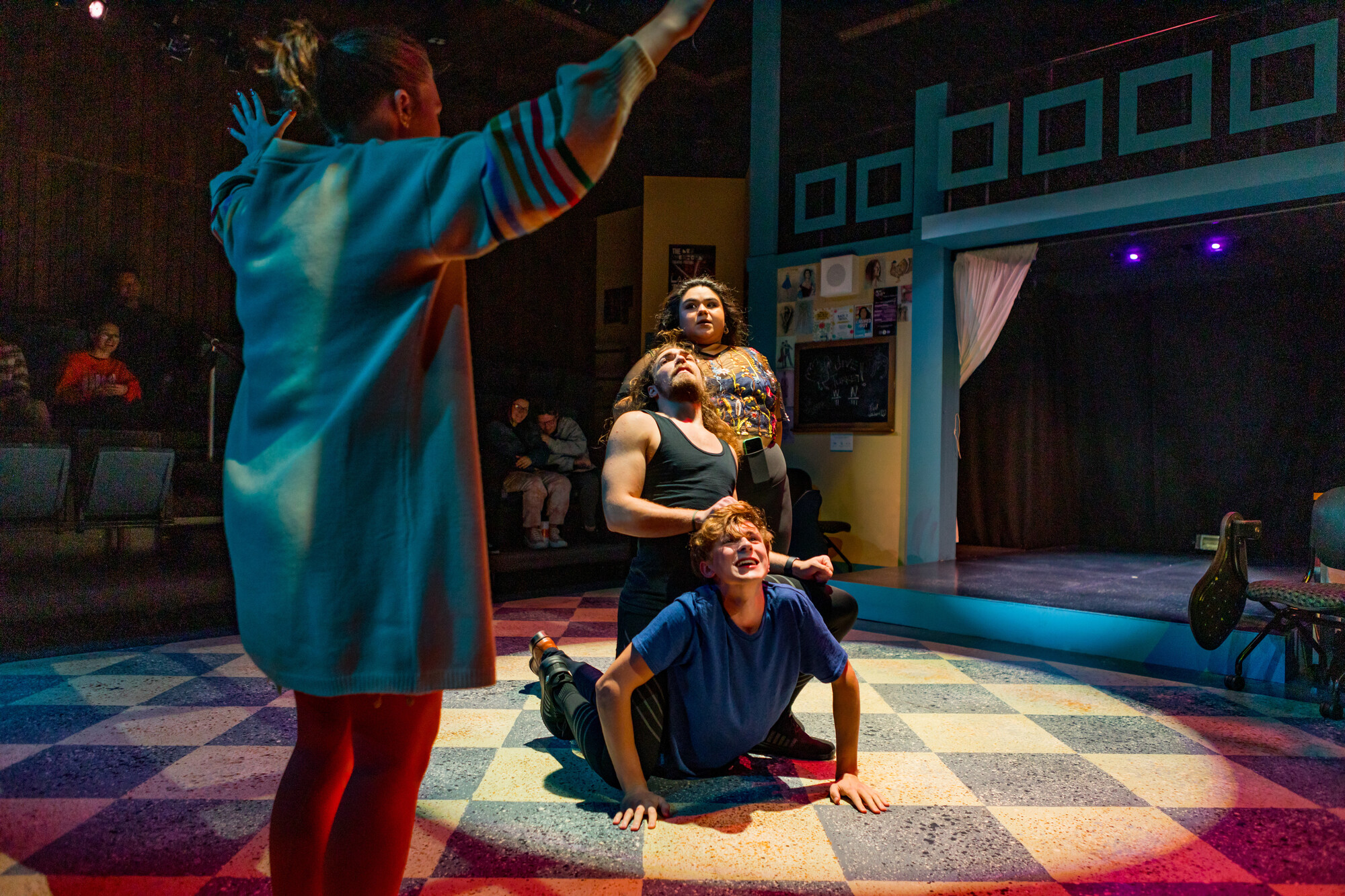
Fiona Burau, Abby Lerma, Gavin Hull, and Andrew Holdsworth in The Thanksgiving Play by Larissa FastHorse at Ohio Northern University. Directed by R. Réal Vargas Alanis. Choreography by Holland Beiser. Intimacy direction by Katja Roberts. Music direction by Andrew Holdsworth. Costume design by Melanie Mortimore. Lighting design and production management by Kathleen E. Default. Sound design by Pano Roditis. Scenic design by Ken Ellis. Dramaturgy by Andrew Holdsworth. Props baby Jared Hoshaw.
Mark: I hope I can leave a legacy of risk taking, adventurous art making, and being of use to the world, and maybe that I was kind and nice. If I can get any of that, success. We'll see.
You?
Réal: I hope my legacy artistically is that I was an initiator, an innovator, and a disruptor. In life, my sense of humor, care, and a humanitarian in pursuit of justice. Either way, I just hope I leave a positive impact on the people I have intersected with.
Mark: As we’re talking about legacy, I’m thinking about Diane Rodriguez. I remember being at Diane's memorial service that they had at the Mark Taper Forum. There were hundreds of people. It was this beautiful, joyous, wonderful event. I'm now the artistic director at Mixed Blood, but I’d just submitted my application then, and I did it half-heartedly. Then, I looked around at the space, the hundreds of people, and I couldn't even fill one hand of Latino artistic directors. This was a who's who of Latinx theatre. This was everybody.
During the memorial service, there was a clip of Diane talking, and she said something about how we are tasked with paving a way and opening doors for everybody that's going to come after us. That everything we do, we do it for ourselves and for the people behind us and the people with us. There was something about hearing her say that, and just looking at the room at who was there, the field of the artistic directors. There are more Latine artistic directors than there have been, and it's still not enough. And then, it was just like, I have to do this. I have to be in it. I have to actually try to get the job, because it's a responsibility.
Réal: Sometimes we don't even know who we are impacting.
Mark: Where we are in our movement, what we're learning… there are now generations of practitioners, there's now a network, there's now connectivity that just didn't exist before. We've accomplished, as a field, success. As I mentioned, I was at this convening today, and I heard somebody say success gets co-opted. When you choose success, it suddenly becomes mainstream, and it now moves beyond the thing where it started.
They posited that maybe what we should be aspiring to is failure because it's in the failure that you break things and you understand how they're working or not working. As Latinx theatre moves closer to the center, moving closer to the center is also moving towards whiteness. That's the dominant culture. That's still where the money and the power is.
The center will beg us to perpetuate the cycles of trauma in exchange for mainstream success. With intentionality, we can combat those systems together.
Réal: In clowning, the most successful clowns utilize “fiasco.” Success comes from fiasco. That doesn't mean that we want everything to go to shit, but rather utilize failure to our advantage.
Mark: Our movement is defined by not being in the center. By definition, we are a subset, not the main thing. The doors that were open for us were very few, and very few people could go through them. Those of us still practicing had to have tremendous tenacity. We're going to do it whether you want us to or not, and because of that, we had to invent how we were going to do it.
And that is a hallmark, it seems like, of Latinx theatre, Latinx artists. And when you talk about failure, that's failure because we're breaking shit. We are breaking it down; we're living outside of what success looks like. And as we move closer to the center, as we move closer to mainstream, as we move closer to dominant culture, how do we preserve without perpetuating trauma?
Réal: The center will beg us to perpetuate the cycles of trauma in exchange for mainstream success. With intentionality, we can combat those systems together. We're not merely observers but creators of a space that extends beyond the present, into a future we're actively shaping. It's a journey I'm grateful to be on with you.
Mark: I want to learn from you. Seriously, that was a lot of knowledge you just dropped. Thank you.
Réal: Thank you. I share the same sentiment. We learn from one another. I feel very inspired by you, and I hope we continue to collaborate.
Mark: I look forward to hanging out more and just to the friendship.
Réal: Cheers to that friend. Salud. We'll chat soon.
Mark: We will. Take care.

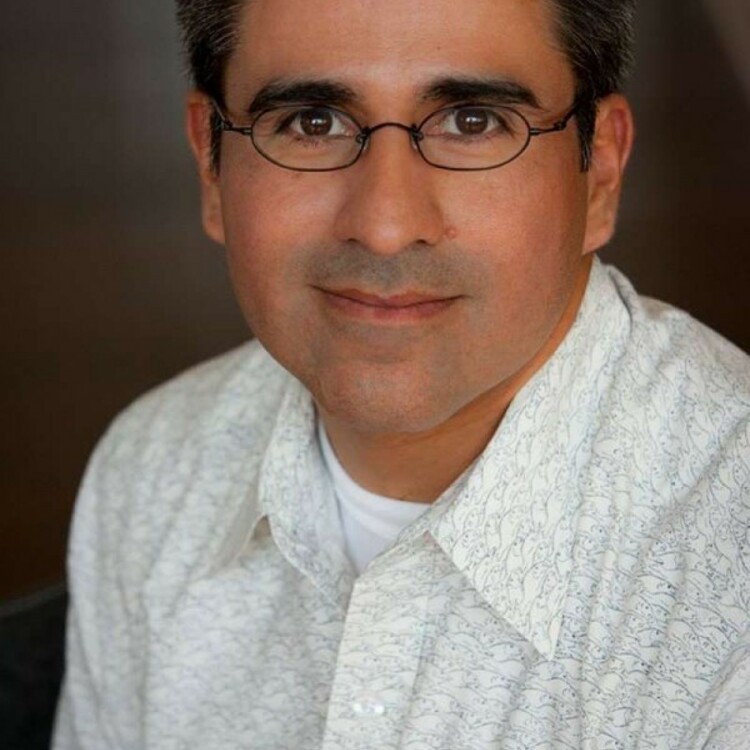
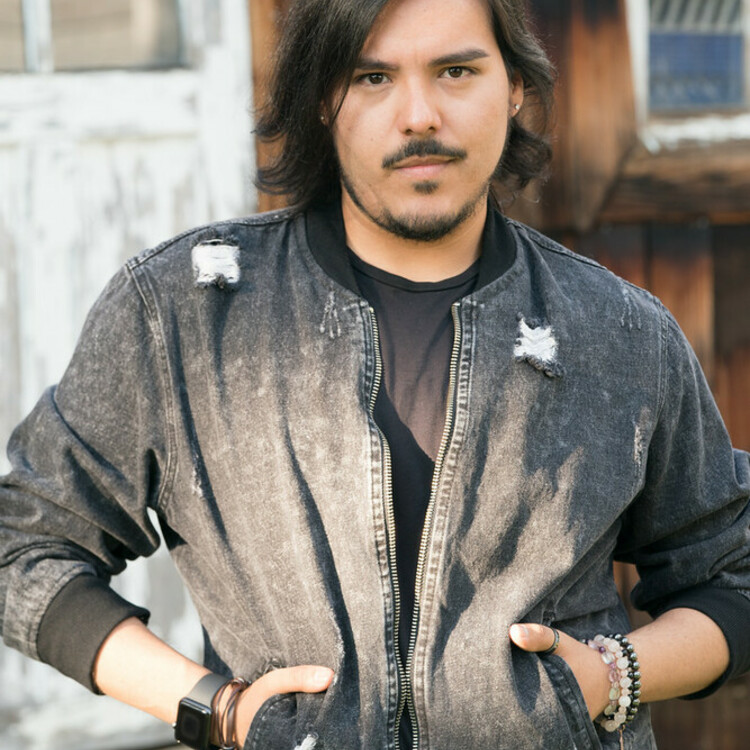
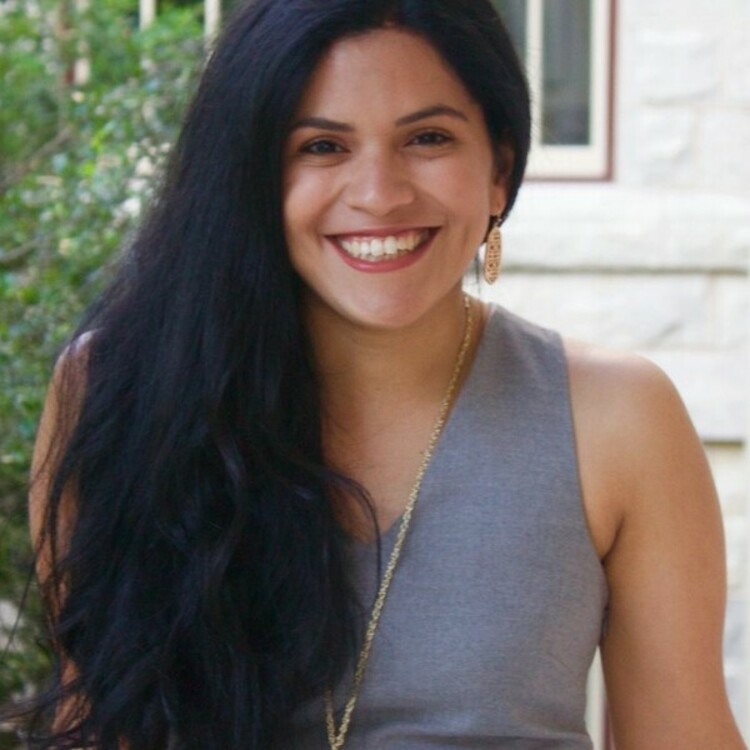
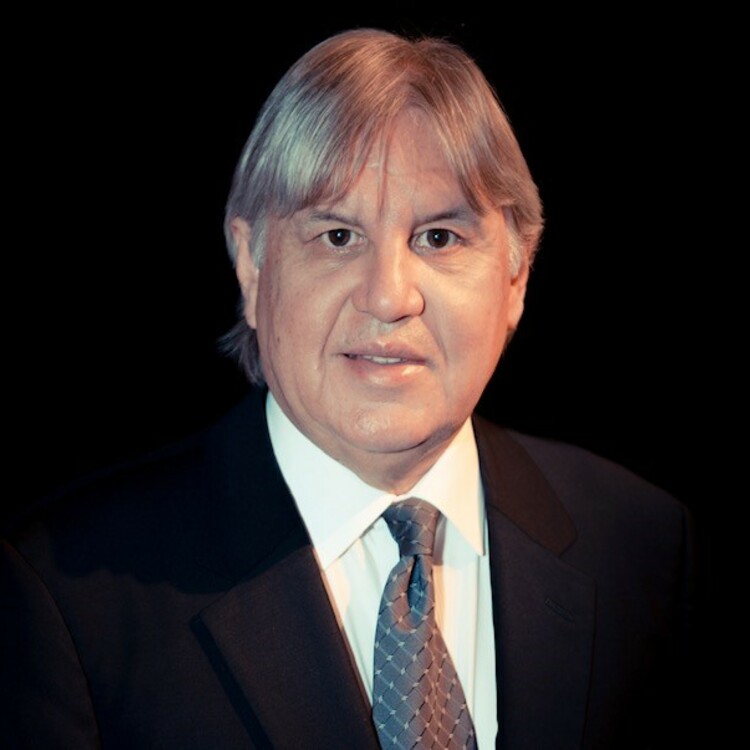
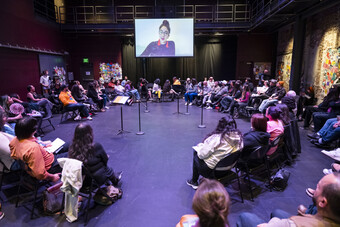

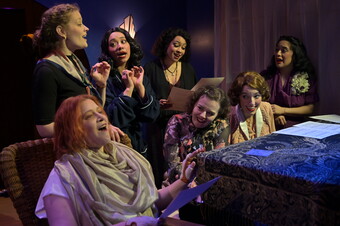


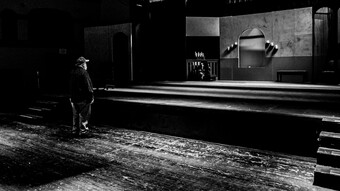


Comments
The article is just the start of the conversation—we want to know what you think about this subject, too! HowlRound is a space for knowledge-sharing, and we welcome spirited, thoughtful, and on-topic dialogue. Find our full comments policy here